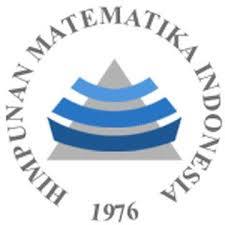Particle Swarm Optimization and Genetic Algorithm for Big Vehicle Problem: Case Study in National Pure Milk Company
Abstract
The number of companies in the industry, as well as the current economic conditions, have created intense competition between companies. One of the important activities of a company is distributing goods from a warehouse to several agents so that the distribution of goods can be done easily and quickly. National Pure Milk Company is based in Salatiga. There are various flavors of pure milk stored in the form of a cup and a pack that will be distributed to each destination. Each cup and pack has data in the form of mass, volume, destination (distance between the destination location and the warehouse location), and the time when it must be dropped. All items of pure milk will be delivered by 4 truck vehicles with different types. Each vehicle has a mass capacity, volume capacity, mileage capacity, trip duration capacity, and trip number capacity. All the data of the pure milk that distributed must not run over the capacity of the vehicle. In this research, Particle Swarm Optimization (PSO) Algorithm can be modified into the discrete PSO Algorithm to determine the shortest distance of the route and Genetic Algorithms can be modified to determine the exact composition of goods on each vehicle. The optimization problem is limited by the condition that each item is delivered at the same time interval.
Keywords
Full Text:
PDFReferences
O. Abdoun and J. Abouchabaka, “A comparative study of adaptive crossover operators for genetic algorithms to resolve the traveling salesman problem,” International Journal of Computer Applications, vol. 31, no. 11, pp. 49–57, 2011.
M. Yousefikhoshbakht, N. Malekzadeh, and M. Sedighpour, “Solving the traveling salesman problem based on the genetic reactive bone route algorithm whit ant colony system,” International Journal of Production Management and Engineering, vol. 4, no. 2, pp. 65–73, 2016.
L. Barreto, A. Amaral, and T. Pereira, “Industry 4.0 implications in logistics: an overview,” Procedia Manufacturing, vol. 13, pp. 1245–1252, 2017.
C. Lamini, S. Benhlima, and A. Elbekri, “Genetic algorithm based approach for autonomous mobile robot path planning,” Procedia Computer Science, vol. 127, pp. 180–189, 2018.
A. Asuntha and A. Srinivasan, “Intelligent pid controller tuning using pso for linear system,” International Journal of Innovative Science and Engineering Technology, vol. 1, no. 5, pp. 166–174, 2014.
S. Kiranyaz, J. Pulkkinen, and M. Gabbouj, “Multi-dimensional particle swarm optimization in dynamic environments,” Expert Systems with Applications, vol. 38, no. 3, pp. 2212–2223, 2011.
Y. Gao, W. Du, and G. Yan, “Selectively-informed particle swarm optimization,” Scientific reports, vol. 5, no. 1, pp. 1–7, 2015.
DOI: http://dx.doi.org/10.12962%2Fj24775401.v7i1.8210
Refbacks
- There are currently no refbacks.
View My Stats

International Journal of Computing Science and Applied Mathematics by Pusat Publikasi Ilmiah LPPM, Institut Teknologi Sepuluh Nopember is licensed under a Creative Commons Attribution-ShareAlike 4.0 International License.
Based on a work at https://iptek.its.ac.id/index.php/ijcsam.






